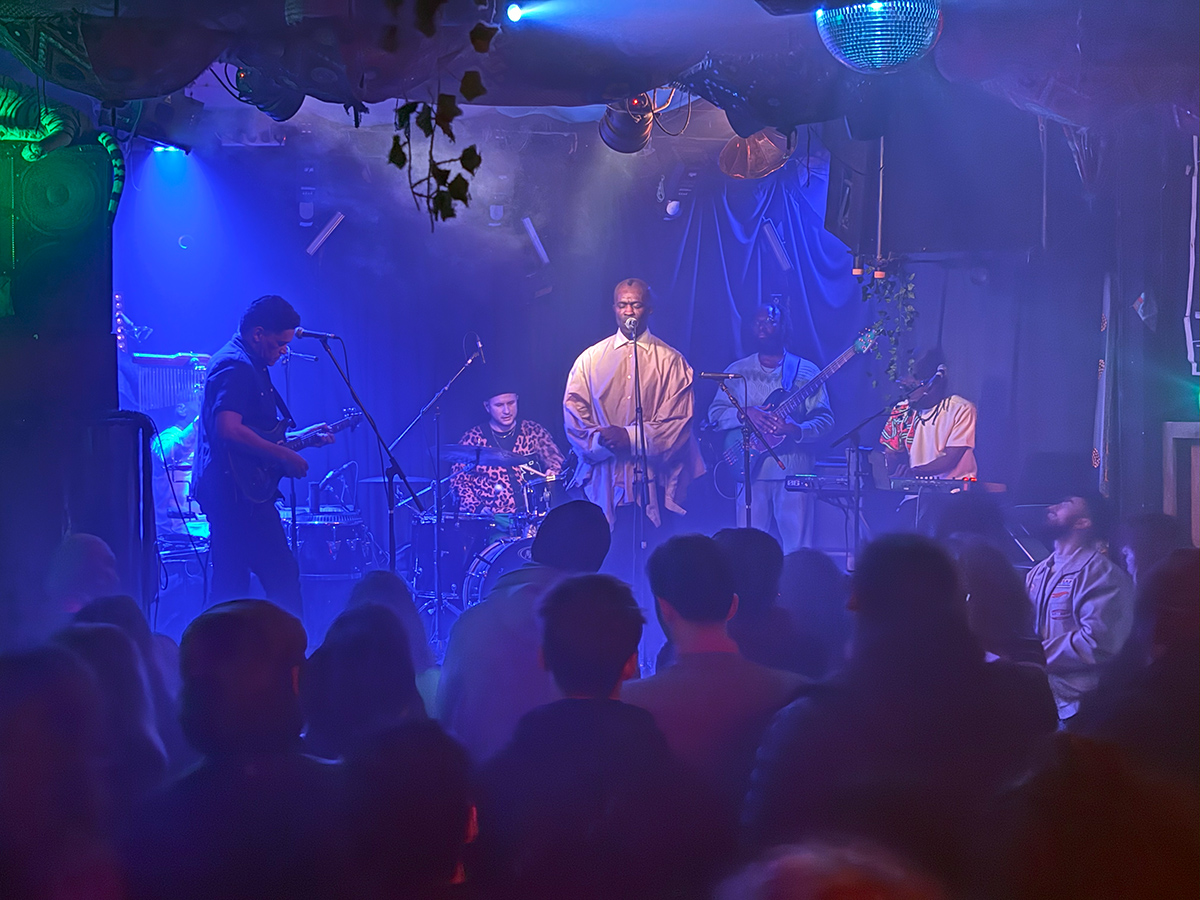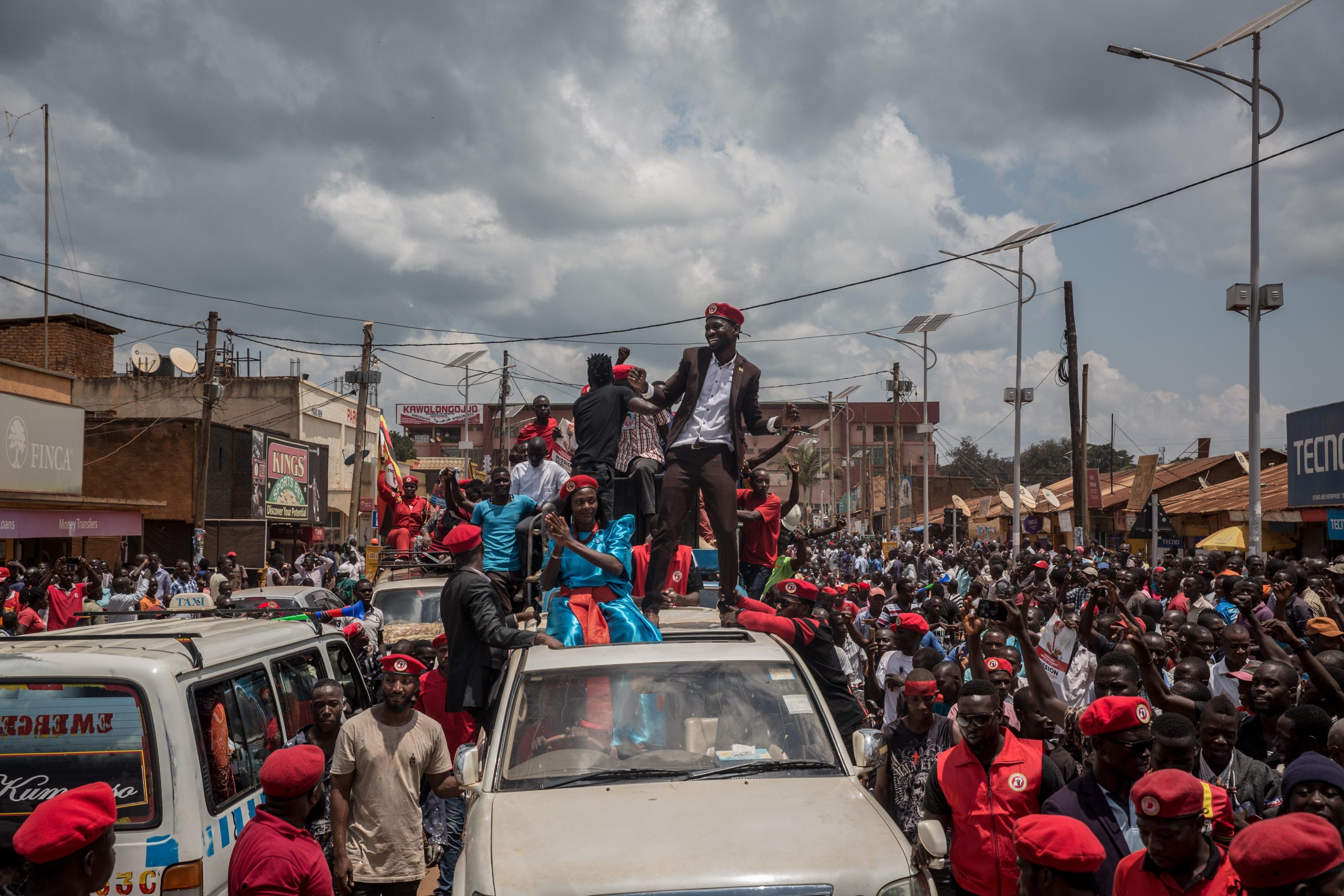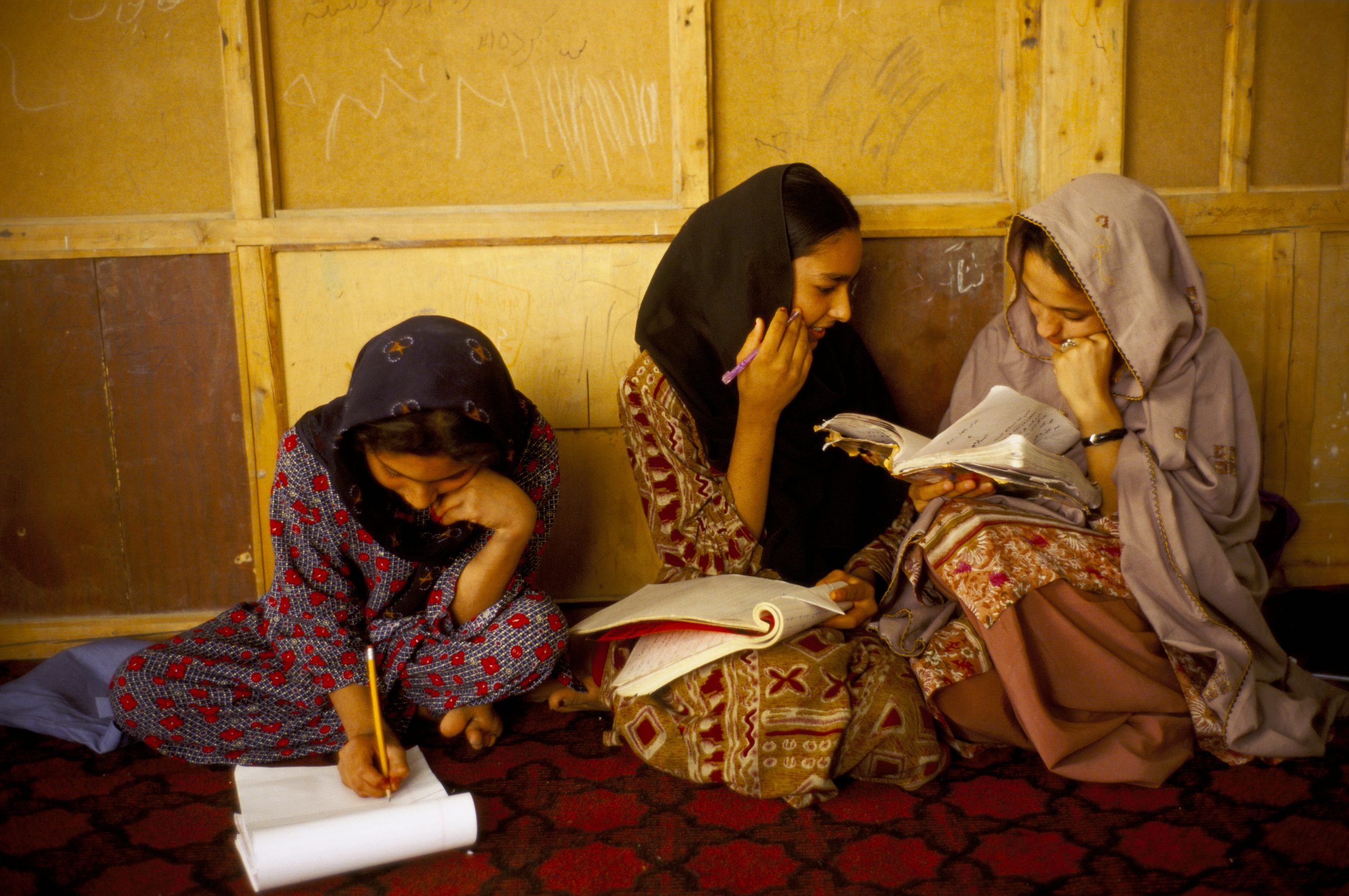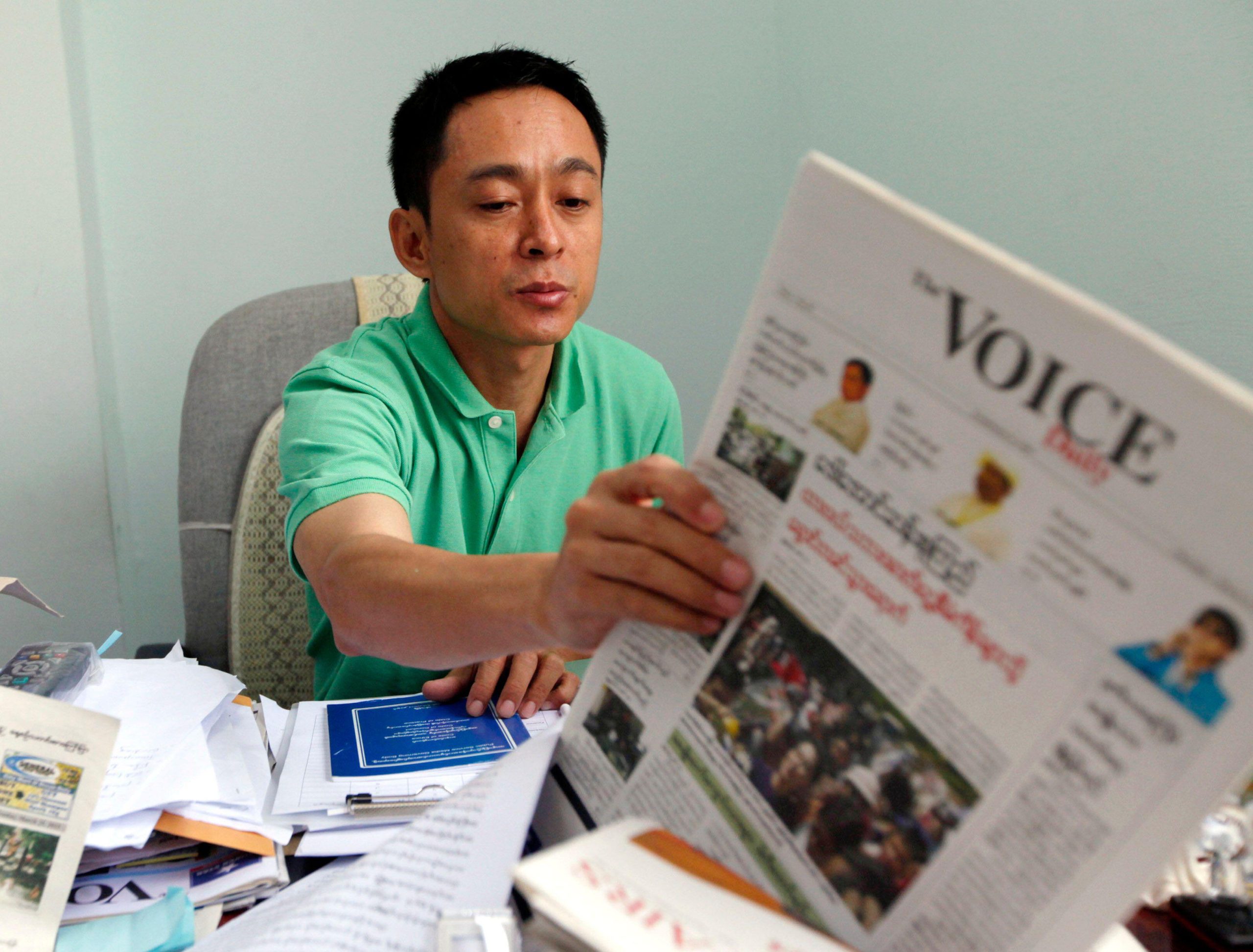Journalist Andrzej Poczobut is getting ready to go to prison — again. He faces criminal charges for libeling Belarus president Alexander Lukashenko. Prosecutors claim that more than 20 articles Poczobut wrote for Belarus websites Charter97.org and Belaruspartizan.org are defamatory. He was arrested on 21 June and his flat was searched. His computers were confiscated, and he spent ten days in detention before being bailed.
Poczobut, who was fined and jailed in 2011 for taking part in protests deemed illegal by the Belarus authorities, believes there is almost no chance he will remain free because he was convicted of libeling the president in July 2011 and given a three-year suspended jail sentence.
“A year ago, I saw a huge file of my articles during an interrogation at the prosecutor’s office,” he says.
That showed they collect everything I had written. But even that did not help them much. I burst into laughter when I learnt what they had based their accusations on. They just picked on a word ‘dictator’ in some of my articles.
Before being sentenced last year, Poczobut spent three months behind bars. Poczobut is a correspondent for the Polish national daily Gazeta Wyborcza in Belarus and his case prompted international protests. It was discussed during a meeting of presidents of the United States and Poland, and the European Parliament and the Council of Europe both demanded his release. As a result, the Belarus authorities dropped some of their charges against him and released him under police supervision. But now the story starts all over again.
How defamation laws are used to jail and silence critics

Editor Mikola Markevich logging while serving his sentence for insulting the president
Belarus’ criminal code contains six articles related to defamation. It is a crime to insult a state official – and the most serious offence, punishable with up to five years in prison, is defaming or insulting the president.
Belarus has a long history of using the law on defamation to silence journalists and opposition activists. In 1999, one of Lukashenko’s main allies, Viktor Sheiman, then the regime’s security chief, sued the independent newspaper Naviny for libel after it published an article about his luxury houses. The paper was forced to pay massive damages – the equivalent of $50,000 – which led to its closure. Lukashenko gave Sheiman full support, declaring:
Newspapers like that should be closed down juridically, or else!
In 2001, the independent newspaper Nasha Svaboda, launched by the former publisher of Naviny, met the same fate after it was sued by Anatol Tozik, head of the State Control Committee. It was made to pay the equivalent of $60,000 in damages (Tozik had demanded $120,000) and ceased publication. Lukashenko publicly denounced “people who deliberately disseminate distorted facts and intentionally exacerbate tensions in society.” The judge in both the Sheiman and Tozik cases was Anatol Savich, who authorised the seizure of the defendants’ property and freezing of their bank accounts. Both cases were rushed through: the Sheiman case took six days from writ to judgment, the Tozik case five.

Pavel Mazhejka, journalist at Pahonia newspaper serving his sentence
Over the past decade there has been a series of defamation cases against journalists and activists – the most serious of which have landed defendants in jail. Three journalists, Mikola Markevich, Pavel Mazhejka and Viktar Ivashkevich, were jailed in 2002 for insulting the president after they criticised Lukashenko In 2004, in the run-up to the referendum on Lukashenko’s change to the constitution to allow him to serve a third term as president, opposition activists Valery Levaneuski and Aliaksandr Vasilieu were both sentenced to two years in jail for defaming him. They had published a leaflet inviting citizens to an opposition meeting that drew attention to an all-expenses-paid holiday Lukashenko had taken in Austria in 2002.
In 2007, the writer and opposition activist Andrei Klimau was sentenced to two years in high-security prison for publishing critical articles on the internet. He was released in early 2008. Other journalists and activists have been fined for insulting local officials, among them Aliaksandr Ihnatsiuk, editor of Vecherniy Stolin newspaper, and Anatol Bukas, editor of Borisovskie Novosti. In 2010, four journalists from the Charter 97 website, Maryna Koktysh, Sviatlana Kalinkina, Natalia Radzinaand Iryna Khalip, were interrogated and had their offices and apartments searched and their equipment confiscated after Ivan Korzh, a KGB general, filed a libel suit.
The Belarusian Association of Journalists has campaigned to change the law on defamation, but without success. In 2003 it collected 7,000 signatures on a petition calling for the removal of the articles on defamation of state officials from the criminal code, on the grounds that they contravened the constitution’s statement that all citizens are equal before the law – but the constitutional court ruled that the law on defamation was consistent with the principles of the constitution. Until the law is changed, journalists and activists facing defamation actions in Belarus will be up against the might of the whole state machine.
Andrzej Poczobut knows this, but refuses to give up. He says:
When I go out in the street. I meet people who were involved in my case. I don’t avert my eyes while they try to pretend they don’t know me … I keep walking with my head up and a smile on my face because I know I’m fighting for the right cause
Andrei Bastunets is a media lawyer and a Vice Chair of the Belarusian Association of Journalists





